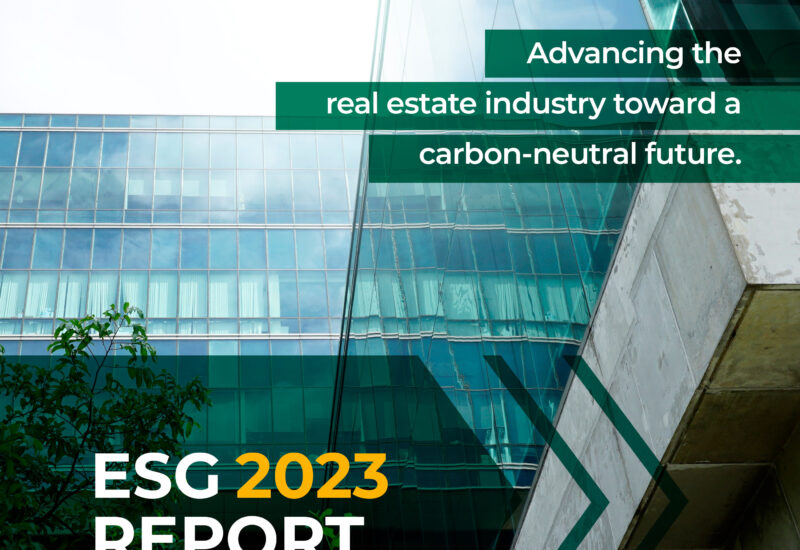In a rapidly changing business landscape, the concept of sustainability is no longer a buzzword but a fundamental pillar of success. ESG – Environmental, Social, and Governance (ESG) is still a buzzword and is widely used. Companies worldwide are recognizing the importance of ESG practices as a means to be mindful of the impact on people and the planet. A strong ESG strategy can drive responsible growth, meet stakeholder expectations, and secure a sustainable future.
To get started, we outlined the key steps in your journey that will help you identify your destination (the purpose), your travel companions (stakeholders and team), and eventually which route you are taking (the materiality assessment to identify frameworks and metrics). Bring engagement from stakeholders to help bring focus to the strategy and kick off the team effort that an ESG program is founded on.

1. Define Your Purpose and Commitment
Why does an ESG program matter to the organization? Is it to reduce environmental impact, conserve valuable resources, improve employee well-being, enhance community engagement, provide internal and external communication, or all of these objectives? Your purpose will serve as the roadmap for your ESG initiatives. At this stage, an outline of the project schedule, budget, and team can set the stage to clarify the time and dedication required for an ESG program and keep the project on track. It’s crucial to make a clear and authentic commitment to sustainability and set an expectation for all levels of the organization to follow through with that commitment when making decisions. This initial roadmap will set the tone for the entire program.

2. Identify Stakeholders and Establish a Team
One person can’t accomplish the ESG program for the organization alone – it’s a collective effort that involves employees, leadership, clients, investors, and communities. Engage your stakeholders early on to understand their expectations, concerns, and priorities regarding ESG. Establish a cross-functional ESG team from all levels and areas of the organization. Often, a group of 5-7 individuals provides enough manpower to move the program forward but still enables every member to have a voice. This group is responsible for driving the ESG movement and maintaining important data and records for annual reporting.

3. Engage Management
Ultimately, the support for and commitment to an ESG initiative starts at the top. Engaging management helps drive momentum for the ESG program since the organization’s leaders will be allocating resources for reporting, contributing feedback on material issues, and contributing to the goals every day in decision-making for the organization.

4. Identify Materiality Topics
The materiality assessment is a critical step in determining the ESG factors that are most relevant to your organization. This process involves identifying the issues that have the most significant impact on your business and matter most to your stakeholders. It helps you prioritize and focus your efforts where they are needed most. Materiality assessments are often guided by recognized ESG frameworks such as the Global Reporting Initiative (GRI) or the Sustainability Accounting Standards Board (SASB). Often, the best way to identify important topics is through old-fashioned brainstorming. After the initial feedback from all stakeholders, brainstorm as many topics as possible, rank, prioritize, and categorize topics by impact, importance, and environmental/social/governance. This forms an initial draft of potential topics to be presented to management for feedback.

5. Collect Data and Establish Metrics
Once you’ve identified material issues, establish metrics to illustrate progress. Whether it’s reducing carbon emissions, expanding the professional development program, or promoting important company objectives like ethics training and data security, having specific, quantitative objectives provides a roadmap for your ESG program. As the old saying goes, you can’t track what you don’t measure. In the beginning, it is often the case that data simply will not be available because it has never been tracked by the organization. The ESG committee must identify the important data required for a material topic and find a way to measure and track it. Metrics are essential for tracking and reporting on your performance.

6. Set Goals and Determine Schedule
Once the team has identified material issues, analyzed them, and identified the baseline, it’s time to look ahead. What goals fit with the mission of the initiatives and the organization’s ESG objectives? Looking back at the outline and material issues formed in the beginning, setting clear, measurable goals drives progress and provides a framework for the organization’s decision-making. In some cases, goal setting is more appropriate at the 3-5 or even 10-year mark with milestones along the way – for example, a goal to become carbon neutral starts with examining and reducing carbon emissions, which can often mean advancing towards that goal in small steps, such as switching to green energy in offices, or purchasing electric fleet vehicles as fossil-fuel powered vehicles are decommissioned). Accomplishing shorter-term goals from year to year provides excitement as the team accomplishes short-term wins and contributes towards the overarching mission of the sustainability initiative.
Why Is ESG Important?
Embracing an ESG program is more than a trend; it’s a requirement for businesses in the 21st century and a powerful tool when organized effectively. Your organization’s sustainability journey starts with purpose, commitment, and a clear plan. By prioritizing ESG, you position your business for long-term success and become a catalyst for positive change in our world.
Next Steps
You may feel behind the curve knowing that your organization hasn’t even started yet. You may feel even more concerned when you start looking into ESG and find out that there isn’t one set of requirements that you comply with and are done.
Don’t despair! This is the first in a blog series related to corporate sustainability and ESG. For questions, comments, or to learn more on this topic, subscribe to our newsletter or contact us at info@baumann-us.com.








